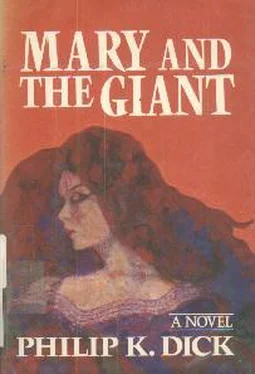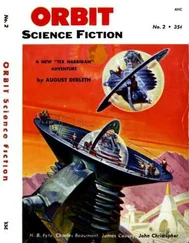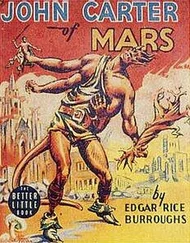Philip Dick - Mary And The Giant
Здесь есть возможность читать онлайн «Philip Dick - Mary And The Giant» весь текст электронной книги совершенно бесплатно (целиком полную версию без сокращений). В некоторых случаях можно слушать аудио, скачать через торрент в формате fb2 и присутствует краткое содержание. Жанр: Фантастика и фэнтези, на английском языке. Описание произведения, (предисловие) а так же отзывы посетителей доступны на портале библиотеки ЛибКат.
- Название:Mary And The Giant
- Автор:
- Жанр:
- Год:неизвестен
- ISBN:нет данных
- Рейтинг книги:4 / 5. Голосов: 1
-
Избранное:Добавить в избранное
- Отзывы:
-
Ваша оценка:
- 80
- 1
- 2
- 3
- 4
- 5
Mary And The Giant: краткое содержание, описание и аннотация
Предлагаем к чтению аннотацию, описание, краткое содержание или предисловие (зависит от того, что написал сам автор книги «Mary And The Giant»). Если вы не нашли необходимую информацию о книге — напишите в комментариях, мы постараемся отыскать её.
Mary And The Giant — читать онлайн бесплатно полную книгу (весь текст) целиком
Ниже представлен текст книги, разбитый по страницам. Система сохранения места последней прочитанной страницы, позволяет с удобством читать онлайн бесплатно книгу «Mary And The Giant», без необходимости каждый раз заново искать на чём Вы остановились. Поставьте закладку, и сможете в любой момент перейти на страницу, на которой закончили чтение.
Интервал:
Закладка:
"Are you hungry?" he asked.
He saw her summon a spurious heartiness. "I'd like something new. Something I've never had before."
"Something new." Elaborately he studied the menu, read all the words and all the prices.
"Something unusual: a treat."
"How about dolma?"
Mary Anne considered at length, as if the matter was of vast importance. And-perhaps-it was. "What's that?" she asked.
"Dolma is a mixture of rice and beef cooked in grape leaves rolled up like tortillas."
"That sounds wonderful. I'd like that."
He ordered. "What do you want to drink?" he asked her as the waiter stood ready with his pad. He was the same waiter they had had the first night, a light-complexioned young Mexican with sideburns down to his jaw. "Some wine? Their port is excellent, as I remember."
"Just coffee."
He ordered the same for himself, and the waiter left. Sighing, he unfastened his cuffs. Mary Anne watched fixedly as he loosened his necktie. "Beth and Tweany came by looking for you," he said. "Did they find you?"
"Yes." She nodded.
He was disturbed to hear it. He had steered them off in a vague tangent, not knowing himself where she was, "Was it important?" he asked. "They looked dire."
The girl's lips moved. "The inquest."
"Oh yes."
Mary Anne said: "What'll we do? What's going to happen to us?"
"Nothing is going to happen to us," he said, and he thought how carefully he measured his assurance. And how tangible the girl's suffering was. "The roof isn't going to fall. The ground isn't going to open up and swallow us." He paused and watched her. "Did they say anything?"
She nodded.
"They did?" He would have liked to get at them. "Is there anybody else you expect to hear from? What about your family?"
"My family-doesn't know."
"But they'd have something to say."
Mary Anne said, "Can't you think of something? You have the brains-you ought to know what to do. Are we just going to sit here and-" She gestured. "Joseph, for Christ's sake, do something!"
The waiter appeared then, bringing first bowls of tossed green salad and then their dinners proper. The interruption was good, and he poked and concentrated on the dolma. He made an issue of it. "Are these grape leaves?"
"Sorry, sir," the waiter said. "No grape leaves during the winter."
"Cabbage?"
"Yes, sir. The real thing starts coming in about April, early May." The waiter served him and Mary Anne their coffee. "Will there be anything else, sir?"
"Not right now," Schilling said.
The waiter departed, leaving the two of them alone.
"I don't mind," Mary Anne said. She ate mechanically. "This is exactly what I wanted."
"What sort of person is this Dave Gordon?" he said. "You never really told me much about him. This morning I was thinking over what you said. Max was in about the same business; he used to operate a car-rental agency, and he had a gas pump and he did a few repairs. Little odds and ends. He used to sit in his office-I'd see him on my way to work. He never seemed to do anything, just sit there in his office." He sliced a dolma in half. "He seemed to enjoy it. In a sense, Max retired when he was fifteen."
She seemed to hear him, and to be following what he was saying. That, at least, was encouraging. But she said nothing. He waited, then went on, speaking conversationally, without emphasis.
"In many ways I'm like that, too. I came here to retire; I wanted a quiet, stable town where I could open my record shop. For me this sleepy atmosphere is exactly right; I can open the store when I want, chat with customers, waste time. There's not really much to do or see. If I wanted to see anything, I suppose I'd have to leave."
"Where would you go?" Mary Anne asked.
"That's hard to say." Showing her his concern, he pondered; he sorted over cities, places, other lands. "Probably New York or San Francisco. I wouldn't go to Los Angeles; in spite of its size, it's really a small town. Of course, it's got informality-you can walk down the street in shorts."
"I've heard that," she said.
"And the climate is nice down there. That talk about smog is mostly propaganda. It's warm; it's spacious; the public transportation system is terrible. If you moved down there you'd have to buy a car." He sipped his coffee. "Have you ever thought of buying a car?"
"No," she said.
"Can you drive?"
"No. I never thought about it."
"Somebody told me cars are two or three hundred dollars cheaper down there. They're high, up here."
She seemed to rise briefly to the surface. "How long does it take to learn to drive?"
Schilling computed. "It varies with the person. If I were you, I'd go to a regular driving school. Two or three weeks. You can get a license then, and practice on your own. There's a lot of satisfaction in owning your own car. You're not dependent on anybody; you can get up and go when and wherever you want. Late at night ... when the streets are deserted. Sometimes when I can't sleep, I get up and go driving. And when you drive well, it's a source of genuine personal satisfaction. Any skill like that, once you acquire it, you don't lose it."
"Cars cost a lot of money, don't they?"
"Some do. You should-if you get one, or ever think of getting one-try looking at light coupes. Say, 1951 to 1953. A Ford or a Chevrolet. A little two-door Olds would be nice; you could get the hydramatic shift. It can be plenty of fun."
"I'd have to save up," she said presently.
"What you might do is this," Schilling said. He had stopped eating and so had she. "Your biggest decision will be whether you want to marry and raise a family, or go into some profession that makes use of your highest abilities-medicine, law, one of the big commercial arts such as advertising, fashion, or even television."
"I hate clothes," she said. "I couldn't ever see dress designing." Then she said: "I was interested in medicine. I took a course in nursing in school."
"What else have you been interested in?"
"I thought I might-you'll laugh."
"No," he said.
"For a little while I thought of being a nun."
He didn't laugh. He felt deeply troubled. "Did you? Do you still feel that way?"
"A little."
"Don't withdraw," he said. "You should be active; you should be with people, doing something. Not off somewhere, isolated, in contemplation."
She nodded.
"What about art? Have you ever taken any aptitude tests?"
Mary Anne said, "They gave us tests in the twelfth grade. I had ability in-" She counted on her fingers. "I was good in manual skills: typing, and sewing, and working with objects."
"Object manipulation," he said.
"I showed ability at clerical things, like filing and handling forms, using office equipment. I didn't have much artistic ability, like painting or drawing or writing. On the IQ test I did pretty good. In sociology we had to do a paper on what we wanted to be. I chose social welfare work. I did a lot of research on it in the library. I'd like to help people ... slums and alcoholism and crime. Race relations-I made a speech in assembly on race relations. It went over good."
"If you were in a big city," Schilling said, "you could get training in some field. You can't really get that here. You have a college, but it isn't much. Stanford, up at Palo Alto, would be another matter. Or even San Francisco City College. Or the university at Berkeley."
"Stanford costs a lot. I looked it up once, when I was about to graduate from high school. But-" Her voice clouded and diminished-"I never got anything out of school."
"You wouldn't be going to school," he said. "You'd be getting training in a particular line. It would be something to use, not just facts to know. It would be your job, your life's work."
"How would I live?"
Schilling said: "You could work in the evening. Or you could take your courses in the evening and work during the day. In a city like San Francisco, you'd have opportunity to do both. Or, here's a suggestion. You might be able to get a scholarship. What kind of grades did you get in school?"
Читать дальшеИнтервал:
Закладка:
Похожие книги на «Mary And The Giant»
Представляем Вашему вниманию похожие книги на «Mary And The Giant» списком для выбора. Мы отобрали схожую по названию и смыслу литературу в надежде предоставить читателям больше вариантов отыскать новые, интересные, ещё непрочитанные произведения.
Обсуждение, отзывы о книге «Mary And The Giant» и просто собственные мнения читателей. Оставьте ваши комментарии, напишите, что Вы думаете о произведении, его смысле или главных героях. Укажите что конкретно понравилось, а что нет, и почему Вы так считаете.










